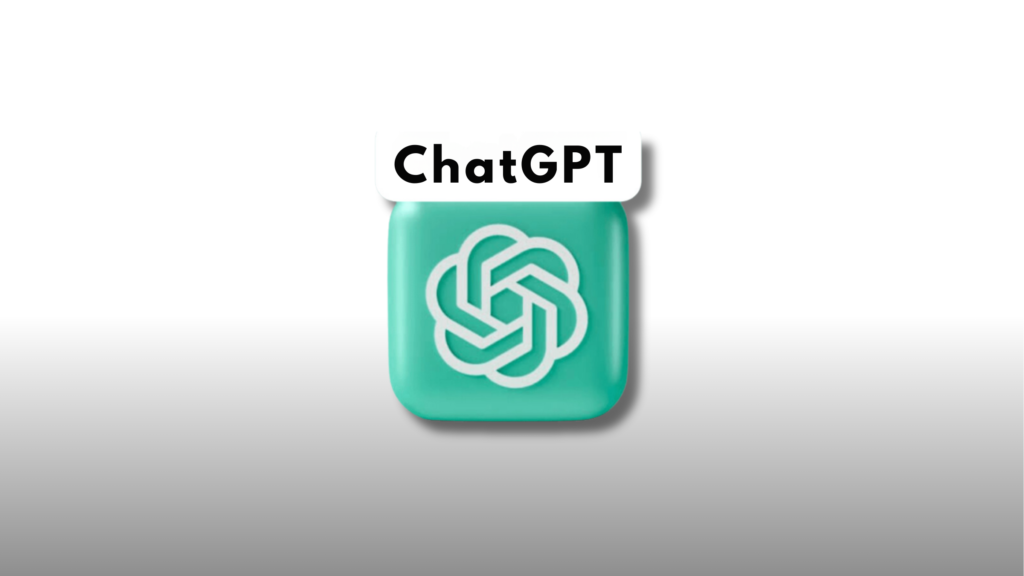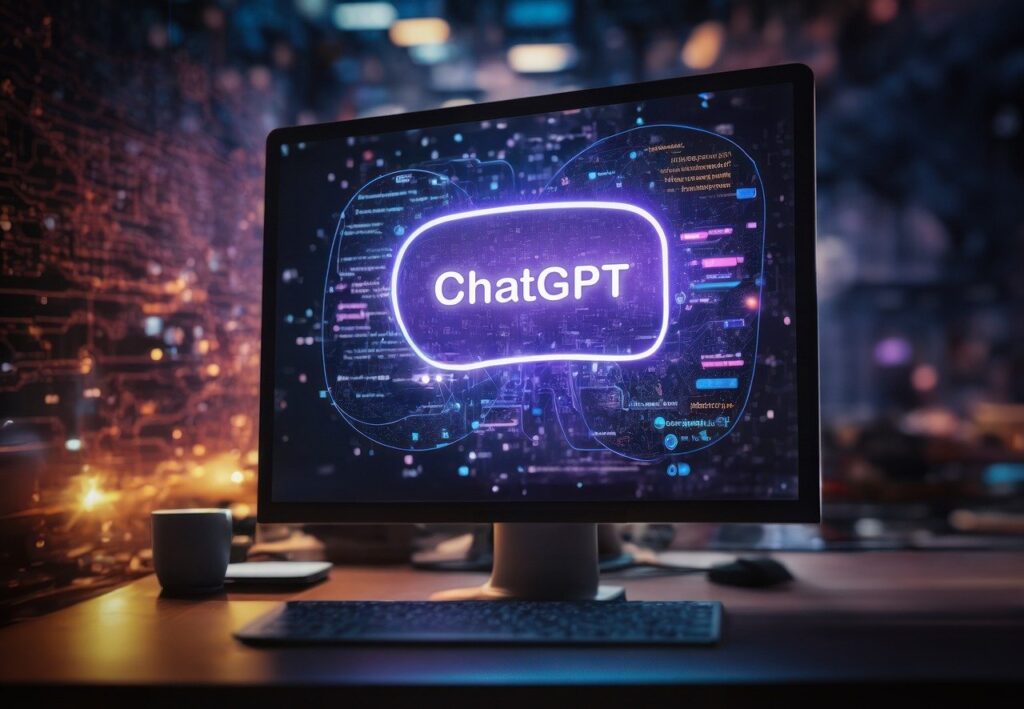ChatGPT is an AI by Anthropic that facilitates English learning through natural language conversations, covering grammar, vocabulary, and more. It offers feedback on writing and helps users understand English expressions and idioms.

You’ve heard all about ChatGPT for English Learning and how this new AI chatbot is changing the game. But did you know it can seriously level up your English skills too? Yup, this bad boy is more than just a fun party trick it can help you take your English to the next level.
From practicing conversations to getting feedback on your writing, ChatGPT for English Learning is like your own personal English tutor. And the best part? It’s free! In this article, we’ll walk through the top ways ChatGPT can improve your English, from expanding your vocabulary to fixing grammar mistakes.
We’ll even throw in some pro tips to make sure you get the most out of your ChatGPT for English Learning sessions. So get ready to unlock a new level of English fluency with your new AI bestie!
ChatGPT is an AI writing assistant that uses natural language processing to analyze prompts and generate human-like responses. Its name comes from the GPT-3 model developed by OpenAI, which stands for Generative Pre-trained Transformer 3.
ChatGPT is powered by machine learning algorithms and an enormous dataset of human language. When you give it a prompt, it can generate multiple responses by predicting the most likely sequences of words that would come next in the conversation. The more data it’s exposed to, the better its responses become.
One of the best ways to use ChatGPT is to simply have a conversation with it. Describe your day, discuss your interests, and ask it questions—and ChatGPT will respond to keep the discussion going. This helps you practice speaking spontaneously and naturally.
You can also use ChatGPT as a tutor. Ask it to explain grammar rules or the differences between similar words. Give it an essay prompt and ask it to outline ideas for you. Have it quiz you on vocabulary or reword sentences in different styles. The possibilities are endless!
While ChatGPT can produce remarkably coherent responses, it’s important to remember that it’s an AI. It has narrow capabilities and limited knowledge that comes only from what it was trained on. It can make factual mistakes, say inappropriate things, and generate nonsensical responses at times. So take its knowledge and advice with a grain of salt.
ChatGPT is a powerful tool, but it is not a substitute for human interaction and feedback. For the best results in improving your English skills, use it as a supplement to speaking with others, doing exercises, reading, and writing on your own. With regular practice, ChatGPT can help boost your learning and confidence in the language.
ChatGPT can generate custom grammar exercises tailored to your needs. Simply tell the AI assistant what grammar topics you want to practice, such as subject-verb agreement or proper comma use, and it will provide examples and short quizzes to help reinforce the rules.
Rather than just memorizing grammar rules in isolation, ChatGPT allows you to see how grammar works in actual sentences and short passages. The AI can generate examples using a variety of common English phrases and informal language to illustrate how grammar rules apply in context. This helps strengthen your understanding and ability to apply the rules in your writing.
If you get stuck on an exercise or have a question about a particular grammar rule, ChatGPT can provide an explanation to help clarify the concept. The AI assistant can walk you through the reasoning behind its answers and provide examples to solidify your understanding.
This type of responsive feedback and guidance can help identify weaknesses and misconceptions, allowing you to focus your efforts on the areas that need the most improvement.
While ChatGPT makes learning grammar more engaging and interactive, becoming proficient still requires diligent practice over time. Aim to spend a few minutes each day working through the grammar exercises the AI provides. Start with the basics, then progress to more advanced topics as your skills improve. Regular practice and repetition are key to mastering grammar and integrating the rules into your everyday writing.
With its personalized guidance and contextualized examples, ChatGPT is an excellent tool for sharpening your grammar skills. While technology can enhance the learning process, always remember that there is no substitute for regular practice and persistence. Stay engaged with the material, ask questions when needed, and keep at it – your English grammar will get better over time!

One of the best ways to pick up new vocabulary is through reading examples of words used in context. Ask ChatGPT for example sentences or phrases for any new word you encounter. It will provide several examples to help illustrate the proper usage and meaning. Compare how the word is used in different examples to get a feel for its nuances.
Once you’ve learned a new word, ask ChatGPT for synonyms, antonyms, and other semantically related terms. For example, if you just learned the word “amenable”, ask for synonyms like “open, receptive, willing” and antonyms such as “unreceptive, uncooperative, intractable”. Exploring connections between words will strengthen your understanding and give you more options to express yourself.
Many English words are formed from roots, prefixes, and suffixes derived from Latin and Greek. ChatGPT can explain the meanings of various word parts and show you examples of words that contain them. For instance, learning that “mal-” means “bad or evil” helps you understand words like “malicious, malady, and malcontent”. Knowing roots and affixes builds your vocabulary over the long run.
As you continue learning, you’ll encounter more and more new words. Use ChatGPT to review words you’ve forgotten or want to strengthen in your memory. Have it provide the definition, examples, and related terms again. Consider making flashcards for words you struggle to remember. Reviewing words multiple times, especially right before you forget them, is key to cementing them into your memory.
With some practice each day, these techniques can significantly boost your vocabulary over time. While ChatGPT won’t replace traditional methods like reading extensively, it provides an interactive way to explore language and reinforce your learning. Use it to supplement your existing vocabulary-building efforts and take your English skills to the next level.
ChatGPT is an AI chatbot created by Anthropic, PBC to have natural conversations. It can be a useful tool for developing and practicing your English speaking skills. Here are some ways ChatGPT for English Learning can help boost your conversational English:
Start by engaging ChatGPT for English Learning in casual greetings like “Good morning!” or “How’s it going?”. Then you’ll be able to talk about topics like weather or what you’ve been doing over the weekend in a little bit of small talk. Getting comfortable with common greetings and small talk is essential for navigating social situations. ChatGPT for English Learning provides a low-pressure environment to build up your confidence in simple polite conversation.
One of the best ways to improve speaking skills is through open-ended discussions on a range of topics. ChatGPT can discuss almost any topic, from science and technology to culture, entertainment, and beyond. Pick subjects you’re interested in and start a conversation. Ask questions, share opinions, and debate ideas. Not only will you strengthen your speaking abilities, but you’ll also expand your knowledge through engaging discussion.
As you converse with ChatGPT, pay attention to the way it responds to you. ChatGPT will always respond to you in clear, grammatically correct English at an appropriate level for the conversation. Notice how it phrases questions and answers, the vocabulary it uses, and the overall structure of its responses. Try to emulate the language choices ChatGPT makes in your responses. Over time, conversing with ChatGPT will help strengthen your own spoken English through exposure and modeling.
While ChatGPT can be a useful practice tool, it does not replace talking with real English speakers. Look for opportunities to start conversations with others, whether with friends and family or by joining local interest groups to connect with new people. Combining practice with AI chatbots and real-world conversations will do wonders for developing your conversational English skills.
So there you have it – ChatGPT can be a powerful tool to help improve your English if used properly. With its conversational abilities, vast knowledge, and tireless patience, this AI chatbot makes a pretty awesome language tutor.
Just remember to guide it with specific questions, double-check its work, and use it as a supplement to other studies. ChatGPT won’t magically make you fluent, but it can help you gain confidence and make progress with the right effort on your part. Now go grab this free tool and start leveling up your English today!
ChatGPT is an AI by Anthropic that facilitates English learning through natural language conversations, covering grammar, vocabulary, and more. It offers feedback on writing and helps users understand English expressions and idioms.
Chatting with ChatGPT can authentically enhance your English skills, including listening, pronunciation, and vocabulary, while building confidence in spontaneous conversation. Regular interaction, akin to speaking with a native, fosters fluency and self-assurance.
Engage with ChatGPT by discussing various topics, sharing personal interests, and role-playing scenarios to improve your English. Utilize it for grammar assistance and writing feedback, but complement this practice with real-world conversations for best results.

Owen is a tech enthusiast and blogger who loves to explore the latest trends and innovations in the world of technology. He writes about topics such as artificial intelligence, blockchain, cybersecurity, and more. He enjoys sharing his insights and opinions with his readers and engaging with them in lively discussions. When he is not writing, he likes to play video games, watch sci-fi movies, and travel to new places.